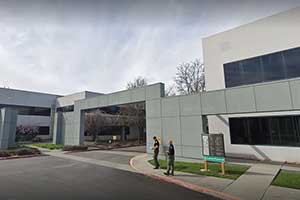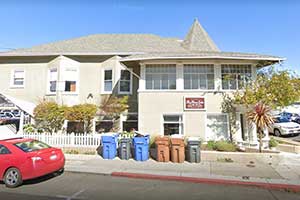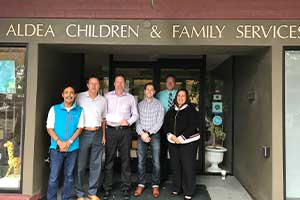Skip To Rehab Listing
However, for people struggling with alcohol and drug abuse problems, Napa can also offer workable solutions in the form of 28 alcohol and drug rehabs intended to support clients in their recoveries.
Alcohol and Drug Rehab Approaches and Settings
Napa area residents who struggle with alcohol and drug abuse have multiple treatment settings available to them, including the following: long term addiction treatment facilities, outpatient day treatment, inpatient drug abuse treatment, detoxification programs, short term addiction treatment programs.
These rehabilitation centers make addiction treatment easy to access, with convenient locations and several varying treatment modalities from which to choose, including those listed here: 12-step facilitation approach, dialectical behavior therapy, anger management, behavior modification, couple/family therapy, cognitive/behavior therapy.
Special Programs for Addiction Treatment
Drug and alcohol addiction affects every individual differently. In order to accommodate these differences and deliver a more customized treatment, substance abuse treatment centers in Napa provide a number of special programs for clients such as: legal advocacy, programs for the hearing impaired, suicide prevention services, self-help groups, domestic violence, persons who have experienced sexual abuse.
Clients who believe they may need these special programs can explore them with the rehab center to get support that is designed to increase the likelihood of sustained sobriety.
Treatment Payment Options
Residents of Napa come from differing financial circumstances, making it vital for treatment programs to deliver many payment alternatives that put recovery within financial reach. Clients can expect to get payment alternatives at local drug and alcohol rehabilitation programs such as the following: cash or self-payment, private insurance, military insurance, payment assistance, state education funds, access to recovery (atr) voucher.
Regardless of a patient's financial situation, money should not be a barrier to recovery. Alcohol and drug rehabs guide people through their payment options and help them pinpoint a way to pay for their treatment.
The desired outcome of multiple rehabs, methods, programs, and financing options is that treatment for addiction is possible for as many individuals who need it.
Commonly Asked Questions about Addiction and Treatment
How can I help a loved one with their addiction to drugs?
Helping a loved one who's struggling with drug addiction can be a complex task that requires compassion, patience, and understanding. Here are several steps you can take:
- Educate Yourself: Learn about addiction and the specific substance(s) your loved one is using. Understanding the nature of addiction, its effects on the brain and behavior, and the process of recovery can make you a more effective source of support.
- Communicate: Open a dialogue with your loved one about their addiction. Make sure to approach them with empathy, expressing your concerns without judgment or blame. Use "I" statements to convey how their behavior is affecting you and others.
- Encourage Treatment: Encourage your loved one to seek professional help. This could involve a variety of treatments, such as detoxification, therapy (individual or group), medications, or residential treatment programs. Each person's pathway to recovery will be unique, so it's important to explore different options to find what may work best for them.
- Support, Don't Enable: There's a fine line between supporting a loved one and enabling their drug use. It's important to assist them in their recovery process, but refrain from protecting them from the negative consequences of their addiction. This might involve setting boundaries for their behavior.
- Take Care of Yourself: Supporting a loved one through addiction can be emotionally challenging. Be sure to take care of your own physical and mental health as well. Seek support from others, such as friends, family, or support groups like Al-Anon or Nar-Anon, which are specifically designed for those affected by a loved one's substance use.
- Stay Patient: Recovery is a long-term process that often involves setbacks. Patience, perseverance, and hope are key during this journey. Celebrate small victories and remember that progress may be slow, but it is still progress.
- Involve Professionals: If your loved one is resistant to seeking help, consider a professionally facilitated intervention. An interventionist can guide you and your family through the process of conveying your concerns and the need for treatment in a structured setting.
What is the first step I must take to get sober?
The journey to sobriety begins with recognizing that there's a problem and deciding to make a change. Here are the steps you might consider:
Admitting the Problem: The first step towards getting sober is acknowledging that your substance use is causing problems in your life and that you need to make a change. This step can be challenging, as it requires honesty and self-reflection.
Seeking Help: Once you've recognized the problem, the next step is to reach out for help. This could involve talking to a trusted friend or family member, a healthcare provider, or a mental health professional. They can offer support and guidance as you navigate your next steps.
Assessment and Diagnosis: A healthcare professional, such as a doctor or a counselor specializing in addiction, can provide a comprehensive evaluation to understand the extent of your substance use and any co-occurring mental health conditions. This assessment will help guide your treatment plan.
Detoxification: If you're physically dependent on a substance, medically supervised detoxification may be necessary. This process manages the acute physical symptoms of withdrawal that occur when you stop taking the substance.
Treatment Plan: Based on your assessment, a personalized treatment plan will be created. This could involve a combination of individual counseling, group therapy, medication-assisted treatment, and supportive care. Treatment might be provided in various settings, including inpatient rehab, outpatient clinics, or through telehealth services.
Support Networks: Building a strong support network is crucial for maintaining sobriety. This could include sober friends and family, support groups like Alcoholics Anonymous or Narcotics Anonymous, and ongoing therapy or counseling.
Ongoing Recovery and Maintenance: Sobriety is a lifelong journey. Once you've completed a treatment program, it's important to have a plan in place to maintain your sobriety. This might involve ongoing therapy, regular attendance at support group meetings, and self-care practices to manage stress.
Remember, it's okay to ask for help, and it's never too late to start the journey to recovery. Everyone's path to sobriety is different, and what works best will depend on your individual circumstances, including the nature of your substance use, your personal history, and your support network.
How does a person become addicted to drugs?
Addiction to drugs is a complex process that involves a combination of biological, psychological, and social factors. It is not simply a matter of weak willpower or moral failing, but rather a chronic disease of the brain that can develop over time.
Here's a simplified explanation of how a person may become addicted to drugs:
- Initial Use: The path to addiction often begins with the voluntary act of taking drugs. This could be due to curiosity, peer pressure, seeking pleasure or relief from stress, or even for medical reasons under prescription.
- Pleasure and Reward: Drugs alter the brain's normal functioning, typically leading to intense feelings of pleasure or the elimination of uncomfortable feelings. They do this by overstimulating the brain's reward system - particularly by releasing large amounts of a neurotransmitter called dopamine, which plays a significant role in feelings of pleasure and reward.
- Repeated Use and Tolerance: Over time, as a person continues to use the drug, the brain adjusts to the excess dopamine by producing less of it or reducing the ability of cells in the reward circuit to respond to it. This reduces the high, leading the person to take more of the drug in an attempt to recreate the original experience. This is known as developing a tolerance.
- Dependence: As the brain becomes used to the drug, physiological changes occur that make the person's body require the drug to function "normally." When the drug is not taken, withdrawal symptoms may be experienced, driving the person to continue using the drug to avoid these uncomfortable or even painful symptoms.
- Addiction: At this point, seeking and consuming the drug becomes a compulsion. The person may want to stop using the drug, but they find it extremely difficult or impossible to do so on their own, even in the face of negative consequences to their health, relationships, or other aspects of their life. The brain's cognitive functions related to judgment, decision-making, learning, memory, and behavior control are significantly altered, leading to harmful behaviors and the cycle of addiction.












